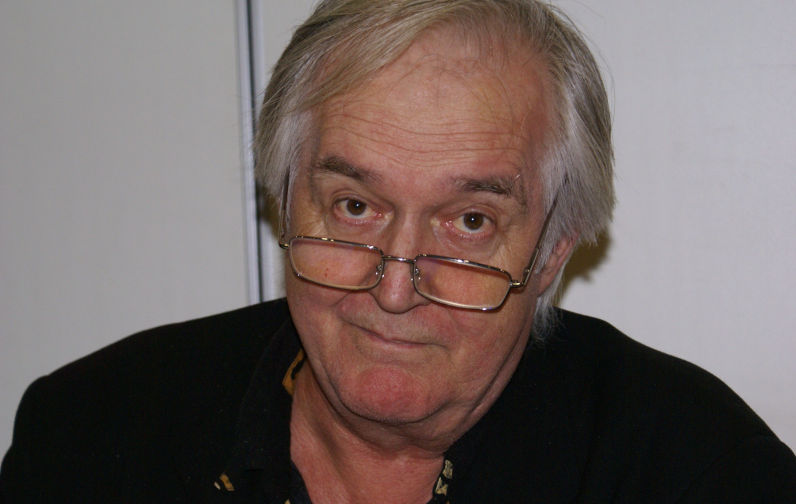The state of Israel: A critical Swedish assessment
February 3, 2024
Around two decades ago, the Swedish writer, Henning Mankell, took an increasingly close interest in the wretched condition of Palestinians living under punishing Israeli domination. What he saw convinced him that Israel was maintaining an apartheid state very like those he had previously visited, at length, in Southern Africa.
Readers may be familiar, from television, with the Swedish, police-detective, Kurt Wallander, based in the town of Ystad in southern Sweden. The BBC supported a well-regarded TV series, starring Kenneth Branagh in the title role, where a cast of British actors strove earnestly to be Swedish in English. The earlier Swedish version of this Swedish detection drama, starring Krister Hendriksson, is measurably better, sub-titles notwithstanding.
The admired author of the series of Wallander books, Henning Mankell, was born in 1948. He became a well-known, left-wing activist. His keen social conscience was evident in his writing, including the Wallander series. He was awarded an Honorary Doctorate, in 2008, by the University of St Andrews in Scotland, in recognition of his major contribution to literature and to the practical exercise of conscience.
Mankell developed a strong interest in the plight of Palestine. Still earlier, he had worked as a supporter of indigenous rights in Southern Africa and especially in Mozambique, a country with which he remained generously engaged for many years. In the 1980s, he visited UN refugee camps in Mozambique and also refugee camps in South Africa. He donated very generously to charities in Mozambique.
Mankell was a guest at the Palestine Festival of Literature in 2009. He described what he saw in Palestine as a repetition of the despicable apartheid system that once treated Africans and coloured [people] as second-class citizens in their own country. He noted, too, a resemblance between the Berlin Wall and the Israeli West Bank Wall, asking: Is it strange that some of them [Palestinians] in pure desperation, when they cannot see any other way out, become suicide bombers? Not really. Maybe it is strange that there are not more of them.
Mankell claimed that he did not encounter antisemitism during his visit but he did encounter, [H]atred against the occupants that is completely normal and understandable stressing how this response was quite separate from antisemitism.
In 2010, Mankell joined the Gaza Flotilla, the Israeli attack on which, sparked international outrage at the time, according to The Guardian.
An Israeli-led blockade of the entire Gaza strip was imposed in 2007, after Hamas won government in a democratic election. This was an outcome that the US and Israel refused to accept after previously supporting the holding of that election. The final Gaza Flotilla comprised six ships which set sail together in late May, 2010 loaded with several thousand tons of humanitarian supplies, including building supplies, for Gaza, much of it loaded in Turkey. Their aim was to break the blockade. The flagship was the Mavi Marmara, a former Turkish ferry, which carried most of the supporters of this attempt to break the blockade.
After warning the flotilla to end its attempt to proceed to Gaza, the Israeli Defence Force (IDF) sent an elite commando unit to board the Mavi Marmara and other vessels in order to stop their progress, impound the vessels and detain all the protestors (with the assistance of Israeli Navy vessels). The activists were not armed with guns but some used bars (and the IDF said knives) to fight back against the IDF personnel boarding from helicopters and ships. The IDF commandos came armed with guns, tear gas and stun grenades. Nine protestors were shot dead (peppered with bullets according to the Guardian) and around 30 were injured. Several IDF soldiers were injured, some seriously.
Mankell was not injured, but along with hundreds of other, he was detained in Israel and then deported to Sweden. Mankell died of cancer in 2015, aged 67.
Postscript
As I was reviewing materials to write this article, I picked up a second-hand copy, recently bought, of The Diary of a Young Girl, by Anne Frank. Many readers will be familiar with this book, which details the horrors of the Nazi occupation of the Netherlands as Anne Frank (at age 13) and her Jewish family hid from the Gestapo in Amsterdam. The book has sold over 30 million copies. The Guardian called it one of the greatest books of the 20th century.
We cannot know with certainty what Anne Frank might have written about what is happening in Gaza, today; she died in the Bergen-Belsen Nazi Concentration Camp in early 1945 at the age of 15. However, when I picked up Anne Franks diary it fell open at page 111. Here is the diary entry starting on that page for Monday, 19 July, 1943:
Dearest Kitty,
Northern Amsterdam was very heavily bombed on Sunday. There was apparently a great deal of destruction. Entire streets are in ruins, and it will take a while for them to dig out all the bodies. So far there have been two hundred dead and countless wounded; the hospitals are bursting at the seams. Weve been told of children searching forlornly in the smouldering ruins for their dead parents. It still makes me shiver to think of the dull distant drone that signified the approaching destruction.

